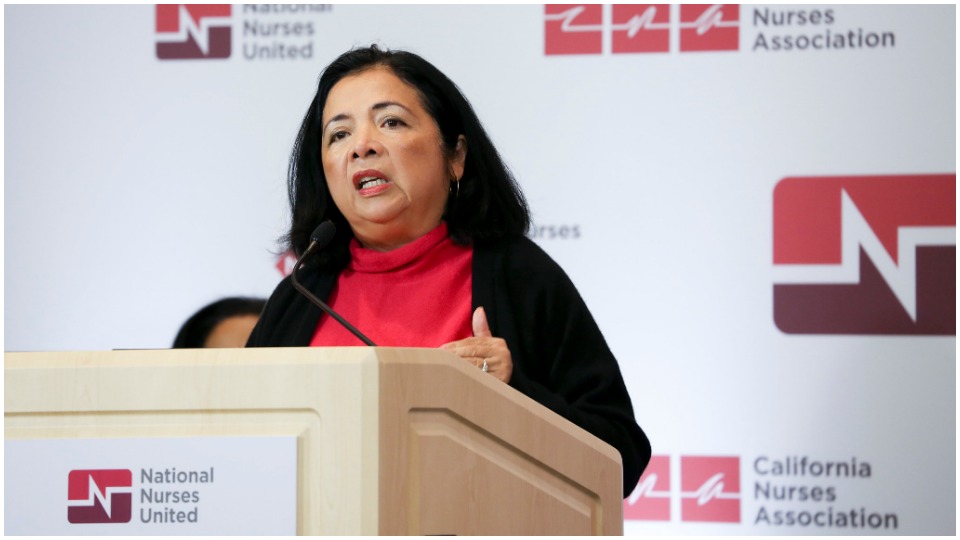 Bonnie Castillo, is the Executive Director of National Nurses United (NNU) and a former Intensive Care Nurse.
Bonnie Castillo, is the Executive Director of National Nurses United (NNU) and a former Intensive Care Nurse.
Back in January, Castillo was concerned by news reports about a virus that was devastating Wuhan, China. So she called for a meeting with the NNU's Director of health and safety and its industrial hygienist to go through scientific reports.
After learning more about the coronavirus, she directed her staff to investigate how prepared U.S. hospitals were for an outbreak.
According to the New York Times, Bonnie said, “As a Nurse, there are just times when it’s very intuitive. You just sense that something catastrophic is going to happen.”
The NNU contacted hundreds of hospitals asking for detailed information about how much personal protective equipment (PPE) they had. The union also surveyed thousands of Nurses asking how they felt about their health facilities’ readiness.
While the survey is ongoing, here are highlights as of March 3, 2020 tallying responses from more than 6,500 Nurses in 48 states, including the District of Columbia and the Virgin Islands.
Some highlights from the survey include:
- Only 44% report that their employer has provided them information about novel coronavirus and how to recognize and respond to possible cases.
- Only 29% report that there is a plan in place to isolate a patient with a possible novel coronavirus infection. 23% report they don't know if there is a plan.
- Only 63% of nurses report having access to N95 respirators on their units. 27% have access to PAPRs.
- Only 30% report that their employer has sufficient PPE stock on hand to protect staff if there is a rapid surge in patients with possible coronavirus infections. 38% don't know.
- Only 65% report having been trained on safely donning and doffing PPE in the previous year.
At the beginning of March, Castillo’s team sent a letter to Vice President Mike Pence and the coronavirus task force coordinator Dr. Deborah Birx, warning that “the majority of U.S. health care facilities are completely unprepared to safely contain Covid-19.”
Then they asked the Occupational Safety and Health Administration (OSHA) to issue an “emergency temporary standard” for infectious diseases which would prompt employers to implement safety standards such as providing more effective N95 masks to Nurses working with coronavirus patients, instead of basic surgical masks. But OSHA didn't take Bonnie's advice.
The Centers for Disease Control and Prevention (CDC) then acknowledged that hospitals did lack sufficient PPE. So the CDC decided to loosen restrictions and required hospitals to provide their staff with only surgical masks, not N95 masks in many situations.
Castillo and her team were rightfully upset and decided to push publicly for more PPE. They held more than 350 socially distanced protests and 2 vigils in front of the White House for Nurses who died from COVID-19.
"Nurses are not afraid to care for our patients if we have the right protections," Bonnie told NPR. "But we're not martyrs sacrificing our lives because our government and our employers didn't do their jobs."
After protests, some officials began allowing the N95 masks for all Nurses working with Covid-19 patients.
In May, House Democrats passed a stimulus bill that included some of the Nurses’ demands, including mass production of PPE through the Defense Production Act and an emergency temporary standard for infectious diseases.
Bonnie is still fighting for adequate PPE for Healthcare workers as the coronavirus rages on and concerns grow about a second wave of infections in the fall. She is an advocate and a cheerleader for all Nurses. It is imperative Nurses and all Healthcare workers get the PPE they need to protect themselves and their families, so they can provide care for their patients.

